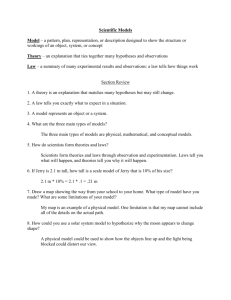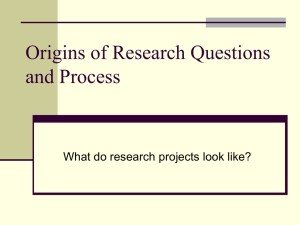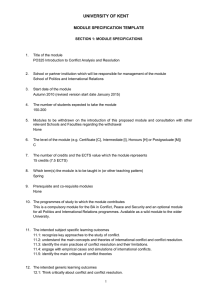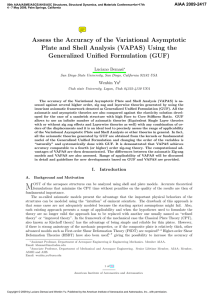Development of a Theory - Wayzata Public Schools
advertisement
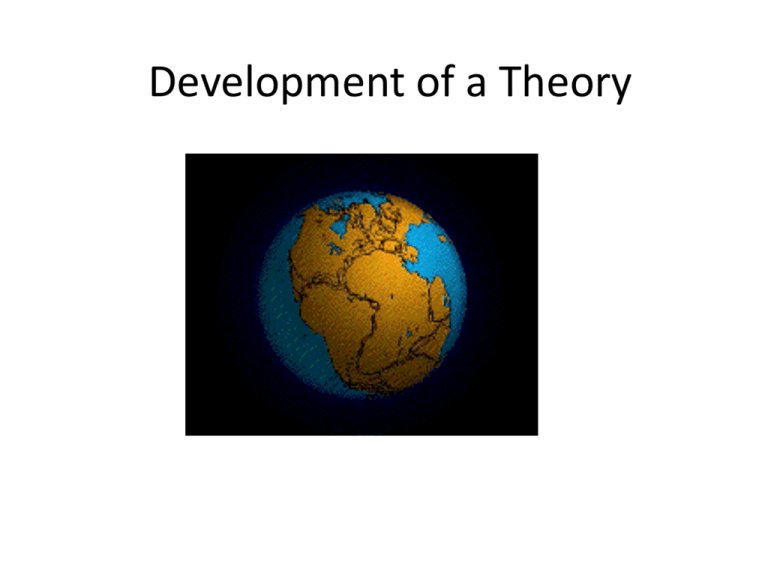
Development of a Theory Now that I’ve shown that adults cannot hear certain ringtones, did I just make a new scientific theory? 1. Yes 2. No 0% 1 0% 2 Hypotheses vs Theories vs Laws Hypothesis • An educated guess based on observations • A rational explanation of a single event • Usually can be supported or refuted by continued experimentation or observation Theory • What one or more hypotheses become when they have been verified and accepted to be true • It explains a set of related observation or proven events • Verified multiple times by separate groups of researchers Law • Describes a single action (usually a mathematical relationship) • Accepted to be true by the scientific community • Much less complex compared to a theory How is a scientific theory developed? 1.) Start with the scientific method observe hypothesis experiment analyze conclusion 2.) Publish findings in a peer reviewed journal publication 3.) Other scientists read and try to duplicate it using different methods 4.) IN TIME, if many other scientists verify and agree then it may become a theory. Theories vs Laws Theory: A well tested explanation for a set of observations or experimental results (subject to revision) Law: A statement that summarizes a pattern found in nature (typically generate a mathematical relationship) Laws Theories • • • • • • • • • • Atomic theory Cell theory Big Bang Theory Theory of Evolution String Theory Theory of relativity Kinetic Molecular Theory Theory of Gravity Germ Theory of Disease Quantum Mechanic Theory • • • • • • • Law of Conservation of ________ Law of universal gravitation Newton’s Law Gas Laws Law of Thermodynamics Hubbles Law Kepler Laws of planetary motion Theories Laws The dynamic theory • Tested - A procedure for critical evaluation; a means of determining the presence, quality, or truth of something • Validated - To establish the soundness of; corroborate or confirm • Revised - To reconsider and change or modify What causes theories to be changed?? Example: Ringtones results 1.) Tested: Repeat the experiment many times by many different people. 2.) Validated: Mr. Rasmussen tries the experiment only he tests the movement of the eardrum of people of various ages in response to higher frequencies. 3.) Revised: As new technology is engineered, we may get more specific as to the general relationship between age and frequency. Pre-plate Tectonic Plate ideas • Belief that all earthly changes were sudden and caused by a series of catastrophes (Catastrophism) • "Contraction theory" which suggested that the planet was once a molten ball and in the process of cooling the surface cracked and folded up on itself. The big problem with this idea was that all mountain ranges should be approximately the same age, and this was known not to be true. Project Details • • • • • • Group 1: Magnetic Fields – Sea Floor spreading Group 2: Fossil Records Group 3: Seismic Activity Group 4: Continental Drift Group 5: Layers of the Earth Group 6: Convection in Mantle What am I going to do? 1.) Research information about the evidence or theory that led to the theory of plate tectonics 2.) Create a poster including the following: a.) Summarize your topic b.) Justify & defend how your piece provided evidence that support the Plate tectonic theory b.) Time in history c.) Any historical connections d.) Anything else relevant to their evidence of theory 3.) As a class put together poster as one big flow map and do a gallery walk taking notes on each 4.) Reflection questions for essay Poster Highlights • Justify - To demonstrate or prove to be just, right, or valid • Defend - To support or maintain, as by argument or action
